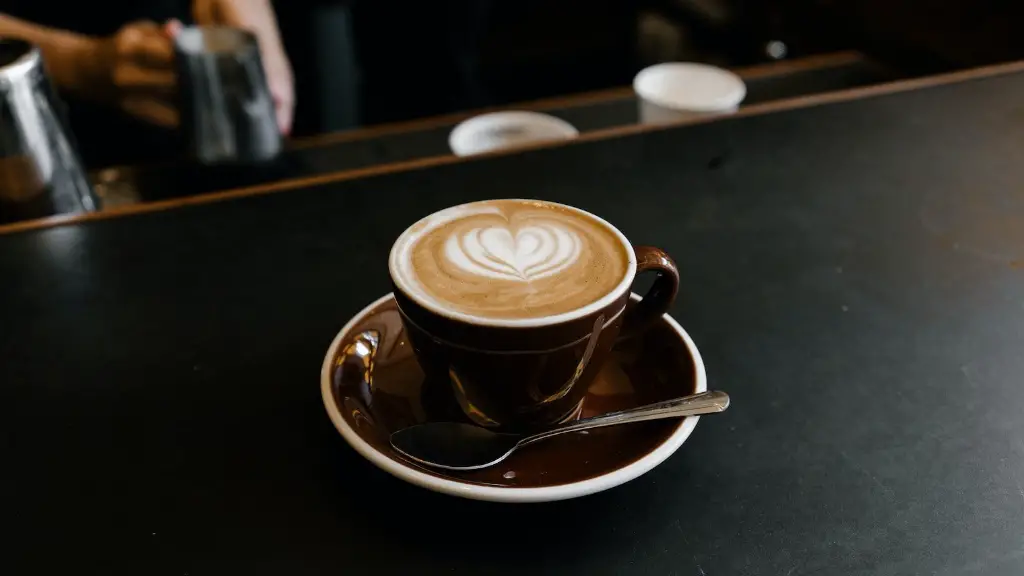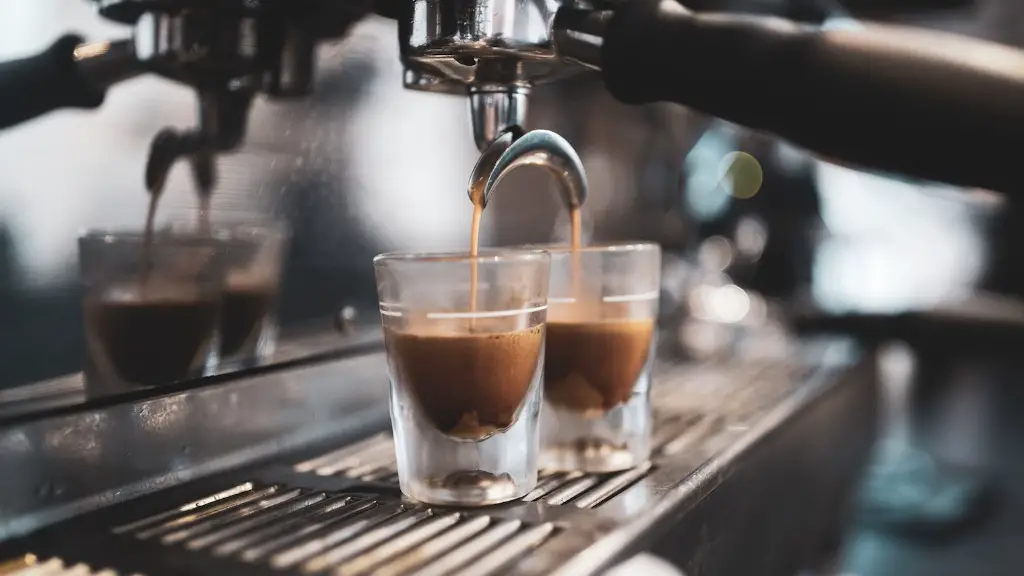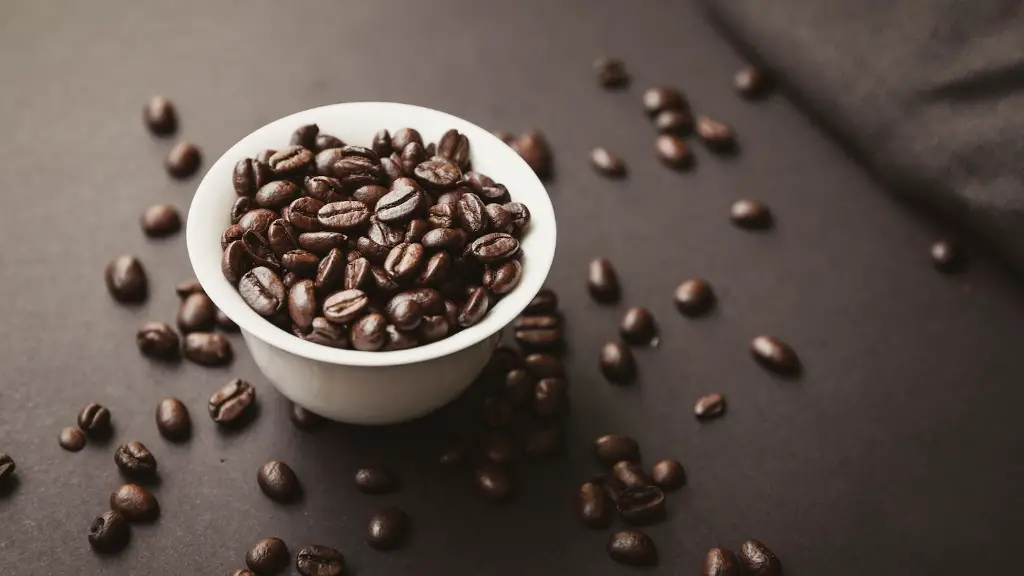Caffeine and Sleep Deprivation
Caffeine is a powerful chemical stimulant contained in coffee drinks and is known to be a factor in sleep deprivation. Caffeine works by blocking the production of melatonin in the brain, which is the hormone that makes us feel drowsy and sleepy. Coffee drinkers may find it difficult to get to sleep when they drink coffee late in the day due to the caffeine it contains. Some people find that they can still fall asleep, but they experience disturbed sleep or have difficulty staying asleep. This can be a challenging problem for anyone who needs to get a good night’s rest.
The Effects of Caffeine
Caffeine is known to have numerous effects on the body and mind. It can give an energy boost, improve concentration and focus and reduce fatigue. However, it can also result in restlessness, insomnia, anxiety and irritability. The effects of caffeine can last from four to eight hours in the body, so if you consume coffee late in the day the effects may still be present and make it harder to get to sleep or stay asleep.
Tips to Get to Sleep After Drinking Coffee
If you’re having trouble falling asleep after drinking coffee late in the day, there are a few tips that may help. Firstly, try to avoid drinking coffee late in the evening or before bedtime. If you must have a cup of coffee in the evening, consider switching to decaffeinated or half-caffeine options. Try to reduce your intake of caffeinated drinks overall, as the effects of caffeine can build up over time. Additionally, take steps to relax before bed, such as taking a warm bath, reading a book or listening to soothing music.
Caffeine Alternatives
If you rely on caffeine to get you through the day, switching to alternative sources may help you get a better night’s sleep. Herbal teas have a mild stimulant effect but will not interfere with sleep. Other options include kombucha, matcha green tea, yerba mate, guarana and chai. While these beverages may contain a lower amount of caffeine than regular coffee, it is important to note that they all still contain some caffeine. So if you’re sensitive to caffeine, try drinking decaffeinated options or avoid these beverages altogether.
Exercise and Caffeine Consumption
A regular exercise routine has been linked to improved sleep quality and duration. So if you have difficulty sleeping after drinking coffee late in the day, try to implement an exercise routine into your daily schedule. Regular exercise has additional benefits such as reducing stress, improving energy levels and overall wellbeing. However, if you are going to exercise make sure you do so at least three hours before bedtime so that your body has enough time to relax and enjoy a restful night’s sleep.
Natural Supplements
While natural supplements are unable to completely reverse the effects of caffeine on the body, they can help to reduce the risk of sleep deprivation. Valerian root is an herb known to contain sedative properties, which can help to promote relaxation. Melatonin is another natural supplement that has been scientifically proven to help people get to sleep faster and improve overall sleep quality. Though these supplements can be beneficial, it is important to talk to your doctor before taking them as they may interact with other medications you are taking.
Using Caffeine Sensibly
It is possible to enjoy the benefits of caffeine while still getting a good night’s sleep. To do this, limit your intake of caffeinated beverages to earlier in the day and choose decaffeinated or low-caffeine options for afternoons and evenings. Additionally, practice good sleep habits such as avoiding screens before bed, keeping your bedroom cool and dark and establishing a regular sleep routine. By combining these tips, you should be able to enjoy your coffee during the day and still get a restful night’s sleep.
Overeating and Caffeine
Many people reach for sugary snacks or unhealthy fast food options when they experience a decrease in energy levels. However, overeating and consuming unhealthy foods can lead to indigestion, which can interfere with your sleeping patterns. To avoid this, opt for healthier options such as fresh fruit, nuts, yogurt or oatmeal. Eating a healthy, balanced diet will help ensure your body and mind get the necessary fuel to keep going throughout the day and improve your chances of getting a good night’s sleep.
Regular Consumption and Caffeine Withdrawal
If you drink coffee regularly, it is likely the body has developed a tolerance, meaning it will take more coffee for the same effects. Regular consumption can also lead to caffeine dependency, where the body becomes reliant on the stimulant in order to function. Caffeine withdrawal can cause a variety of symptoms such as lethargy, headaches and anxiety. If you think you may be dependent on caffeine, try cutting back your intake gradually to reduce the severity of the symptoms and give your body a chance to adjust.
Limiting Caffeine Intake at Night
If you rely on caffeine to get you through the day, it is important to limit your intake at night. Try to avoid drinking coffee after 2 or 3pm and opt for decaffeinated options instead. Additionally, steer clear of energy drinks or other caffeinated beverages such as soda or tea. This can help to ensure your body and mind are relaxed and ready for sleep when it’s time to go to bed.


